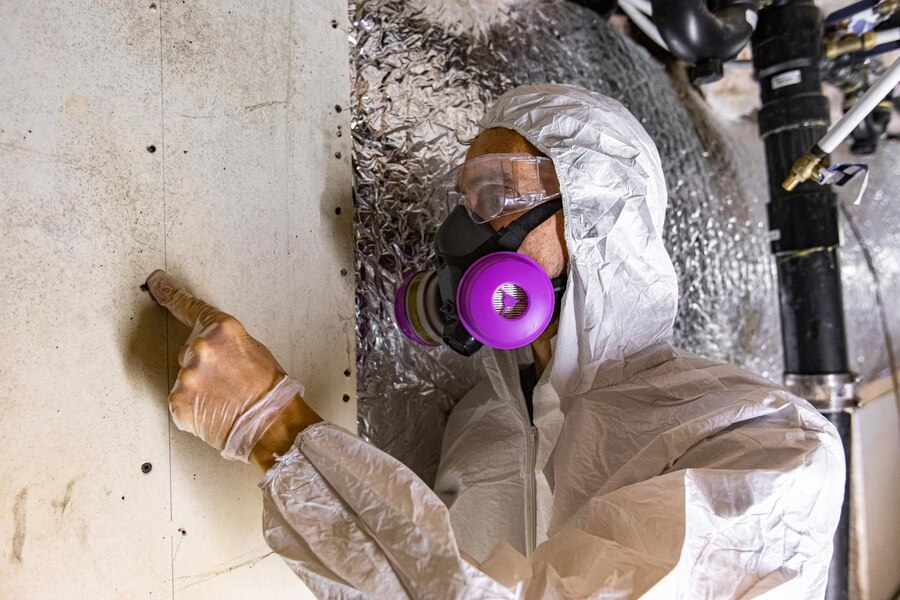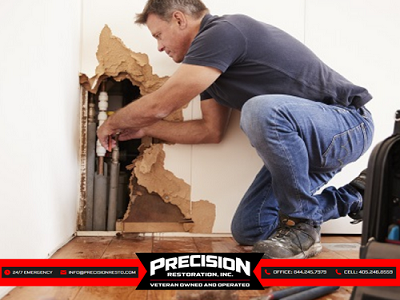Mold is a common household problem that can cause significant health issues and damage to property. Traditional mold remediation methods often involve harsh chemicals and procedures that can be harmful to both human health and the environment. However, with growing awareness of environmental sustainability, there’s a shift towards eco-friendly mold remediation solutions that prioritize both health and the planet. In this article, we’ll explore the importance of eco-friendly mold remediation and some sustainable methods to tackle this issue.
The Environmental Impact of Mold Remediation:

Conventional mold remediation methods typically involve the use of chemical biocides and fungicides, which can have adverse effects on indoor air quality and the environment. These chemicals may contaminate soil, waterways, and harm wildlife. Moreover, the energy-intensive processes involved in traditional remediation, such as demolition and reconstruction, contribute to carbon emissions and resource depletion.
Traditional mold remediation practices often come with a hefty environmental cost that extends far beyond the immediate confines of the affected area. One of the most significant contributors to environmental degradation is the widespread use of chemical biocides and fungicides in conventional remediation processes. These potent chemicals, designed to eradicate mold growth, pose serious threats to ecosystems when they inevitably find their way into soil, waterways, and even the air we breathe.
Why Eco-Friendly Mold Remediation Matters:
Healthier Indoor Air Quality: Eco-friendly mold remediation techniques prioritize the use of non-toxic, natural ingredients that are safe for both humans and pets. By avoiding harmful chemicals, these methods help maintain indoor air quality and reduce the risk of respiratory issues and allergies caused by exposure to toxins.
Sustainable Practices: Eco-friendly mold remediation focuses on sustainable practices such as prevention, containment, and non-invasive remediation techniques. By adopting these methods, we can minimize waste generation, conserve resources, and reduce the carbon footprint associated with remediation efforts.
Protection of Ecosystems: Chemical-based mold remediation can contaminate soil and water, posing a threat to ecosystems and biodiversity. Eco-friendly approaches prioritize the use of biodegradable materials and techniques that minimize environmental impact, ensuring the protection of our natural habitats.
Eco-Friendly Mold Remediation Techniques:
Natural Cleaning Agents: Instead of harsh chemical cleaners, eco-friendly mold remediation employs natural alternatives such as vinegar, hydrogen peroxide, and tea tree oil. These substances have antimicrobial properties that effectively combat mold without posing risks to human health or the environment.
Encapsulation: Encapsulation involves the application of eco-friendly sealants to mold-infested surfaces, preventing further growth and containing existing mold colonies. This approach eliminates the need for extensive demolition and reconstruction, reducing waste generation and resource consumption.

High-Efficiency Air Filtration: HEPA (High-Efficiency Particulate Air) filtration systems are used to remove mold spores and other airborne contaminants from indoor environments. By improving indoor air quality, these systems support a healthier living environment while minimizing the spread of mold.
Prevention Strategies: Eco-friendly mold remediation emphasizes proactive measures to prevent mold growth, such as controlling moisture levels, improving ventilation, and using eco-friendly building materials that resist mold formation. By addressing the root causes of mold growth, we can minimize the need for remediation efforts altogether.
Conclusion:
Eco-friendly mold remediation offers a sustainable approach to addressing mold problems in homes and buildings, especially in Oklahoma City, Oklahoma. By prioritizing non-toxic materials, sustainable practices, and prevention strategies, we can protect both human health and the environment. As awareness of environmental sustainability grows, embracing eco-friendly mold remediation techniques becomes imperative for creating healthier, more resilient communities. Let’s take proactive steps towards a greener, cleaner future by adopting eco-friendly solutions for mold remediation.
Contact us today at Precision Restoration Inc. to learn more about our eco-friendly mold remediation services and how we can help you create a healthier indoor environment while minimizing your environmental impact.



